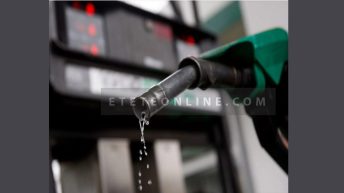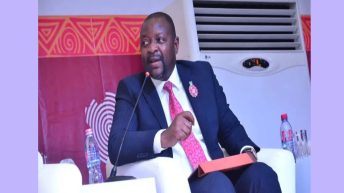By Our Reporter
Nigeria produced roughly 1.306 million barrels of crude oil per day (bpd) on average when Bola Tinubu was elected president in 2023. But as of November 2025, the number has increased to 1.7 million bpd under his Renewed Hope Agenda.
Nigeria’s crude oil output has increased to 1.7 million barrels per day, with aspirations to reach 2 million barrels per day by 2027, according to the Nigerian National Petroleum Company Limited.
During the “Energy Talk” event at the Abu Dhabi International Petroleum Exhibition and Conference (ADIPEC 2025) in the United Arab Emirates, Group Chief Executive Officer Mr. Bashir Ojulari revealed this information. One of the biggest energy conferences in the world is ADIPEC, which ADNOC hosts every year. With the subject “Energy. Intelligence. Impact,” the 2025 edition is the 41st in the series.
According to Ojulari, the increase in the oil output target was brought about by redefining ties with independents and international oil companies, getting rid of old obstacles, and bringing everyone on board with shared values. He claimed that funding for dry gas development, deep-water exploration, and cost reduction was already being drawn in by new government incentives outside of the Petroleum Industry Act (PIA).
He highlighted some of the country’s well-known energy projects, including the expansion of gas infrastructure, which includes the near-completion of the Obiafu-Obrikom-Oben (OB3) and the Ajaokuta-Kaduna-Kano (AKK) gas pipeline, the rollout of cleaner energy, which includes the Presidential CNG Initiative and the expansion of autogas corridors, and upstream revival through accelerated new field development.
According to Ojulari, the company’s output expansion was fueled by redefining alliances with both domestic and foreign oil producers, removing long-standing barriers, and refocusing on shared value.
Ojulari claims that in addition to the Petroleum Industry Act, new government incentives are already luring capital into dry gas development, deep-water exploration, and cost-cutting initiatives.
In addition to highlighting the ongoing upstream revival projects and the expansion of gas infrastructure—including the almost finished Ajaokuta-Kaduna-Kano and Obiafu-Obrikom-Oben pipelines—and the introduction of cleaner energy solutions—like the Presidential CNG Initiative and the expansion of the autogas corridor—he called on international investors to establish audacious collaborations with the goal of ending energy poverty in Africa.
Nigeria plays a key role in Africa’s energy landscape, according to Ojulari, who also emphasized that NNPC Ltd is the key to promoting energy sufficiency on the continent.
He emphasized Nigeria’s enormous potential for oil, gas, and renewable energy and said that the country is working to transition from an extractive economy to a diversified, investment-driven energy hub under President Bola Tinubu’s Renewed Hope Agenda.
He stated that practicality, collaboration, and purpose must be the cornerstones of Africa’s energy destiny. Not only were they taking part in the energy transformation, but NNPC Limited was also helping to shape it from an African point of view. Their goals were practical: increase output, make money from gas, strengthen alliances, and provide value to both Nigerians and international partners.
According to him, Nigeria has sent a clear statement to the world that it is open for business and that NNPC Limited is prepared for the future. Co-investment in Africa’s energy transition is open to the world.





Add comment